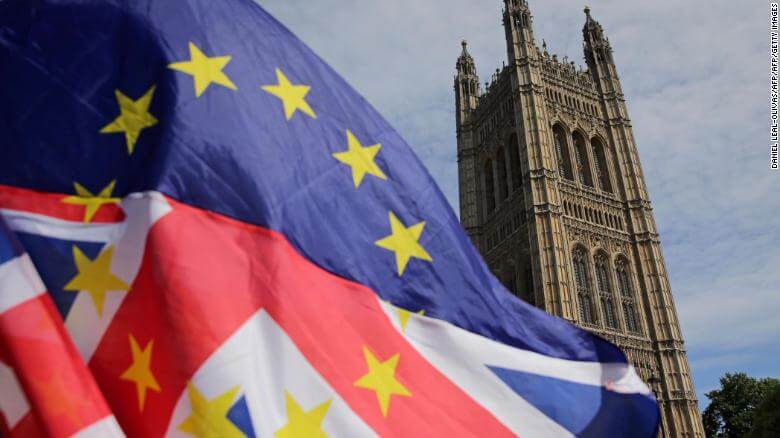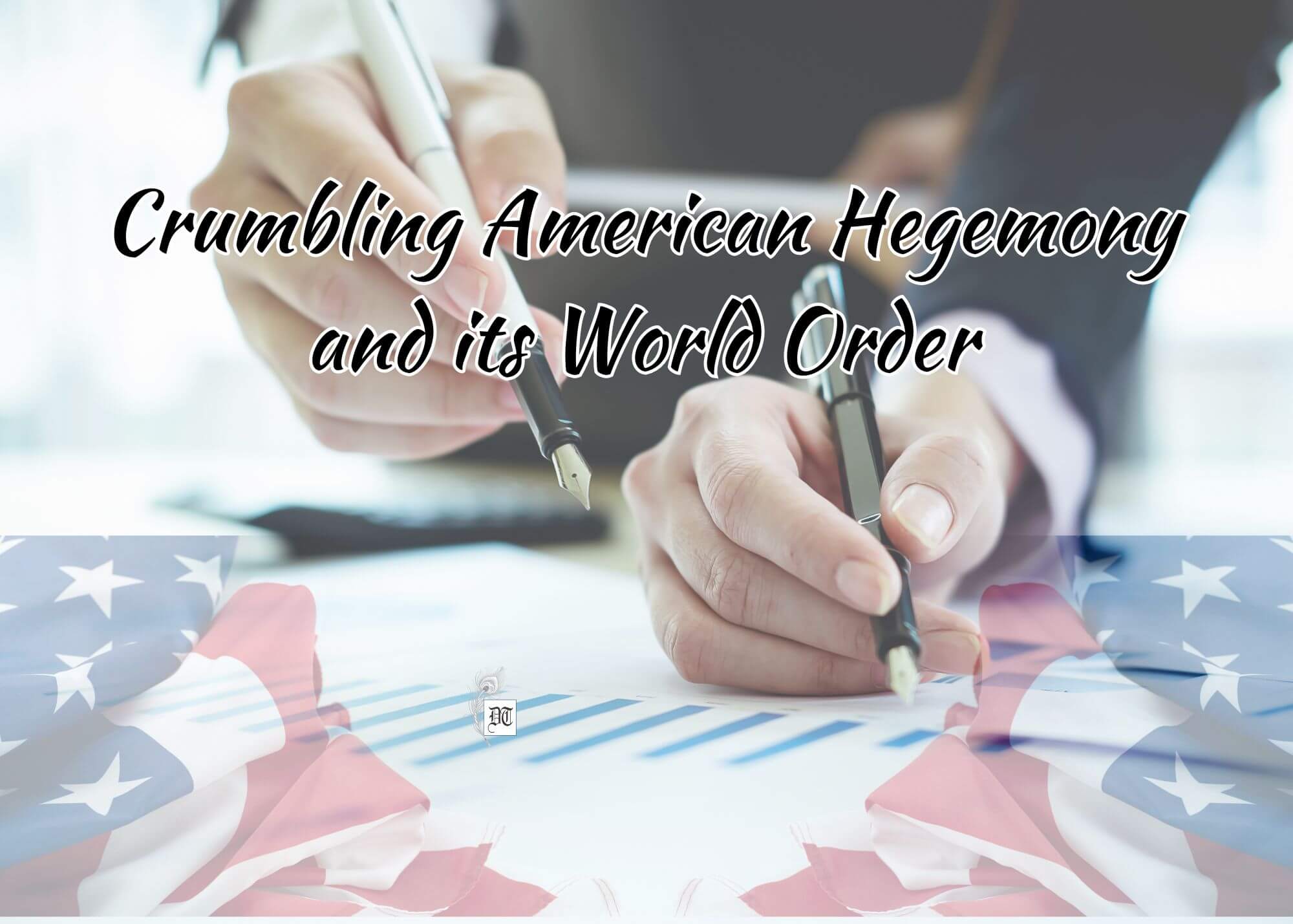The win of Conservative Boris Johnson in the UK was a vote for Brexit. It did not go down very well with liberal-minded Indians abroad and elsewhere. Navodita, our Associate Editor, analyses how is it going to fare for the British economy, exclusively for Different Truths.
 The country is seething with resentment at Citizenship Amendment Act, US is busy impeaching President Donald Trump and women are still continuing their struggle against archaic laws to find parity.
The country is seething with resentment at Citizenship Amendment Act, US is busy impeaching President Donald Trump and women are still continuing their struggle against archaic laws to find parity.
Most recently, the win of Conservative Boris Johnson in the UK was a vote for Brexit. It did not go down very well with liberal-minded Indians abroad and elsewhere. Let us see how is it going to fare for the British economy.
In the words of author Harold James, “the Brexit vote on June 23 was a revolution in a country with little experience of revolutions.” It’s here to stay – whatever the composition of the British government, it cannot avoid the political imperative to deliver Brexit and make the best of an unknown situation.
On 23rd June, 2016, the UK voted to leave the European Union. On 29th March, 2017, Prime Minister Theresa May submitted the so-called notification letter to European Council President Donald Tusk. This initiated withdrawal proceedings as per Article 50 of the Treaty on European Union and set the stage for the opening of negotiations between the EU and the UK in the summer of 2017. In the words of author Harold James, “the Brexit vote on June 23 was a revolution in a country with little experience of revolutions.” It’s here to stay – whatever the composition of the British government, it cannot avoid the political imperative to deliver Brexit and make the best of an unknown situation. Given that the debate over immigration played such a prominent part of the Leave campaign, it can also be expected that the principle of free movement of persons cannot be maintained in the future relationship between the UK and the EU.
Article 50 of the Treaty on European Union stipulates, “in the light of the guidelines provided by the European Council, the Union shall negotiate and conclude an agreement with that State, setting out the arrangements for its withdrawal, taking account of the framework for its future relationship with the Union”. On 29 April 2017, a special meeting of the European Council adopted such guidelines – the first in a set that will be updated as negotiations progress. These guidelines marked the choice for a phased approach. The first phase would aim to provide clarity and legal certainty for EU citizens and businesses affected by Brexit, as well as to settle the disentanglement of the UK from the EU, most notably in a budgetary sense.
The European Council also recognised the “unique circumstances” that exist on the island of Ireland and endorsed “the aim of avoiding a hard border, while respecting the integrity of the Union legal order”.
The second phase would turn to the future relationship between the UK and the EU, starting “as soon as the European Council decides that sufficient progress has

been made”. As such, the European Council established a clear order of priorities: guaranteeing the rights of EU citizens derived from EU law comes first, a single financial settlement second and a future framework third. The European Council also recognised the “unique circumstances” that exist on the island of Ireland and endorsed “the aim of avoiding a hard border, while respecting the integrity of the Union legal order”. On 22 May, the General Affairs Council went on to translate these guidelines into a set of directives for the European Commission’s negotiating taskforce that had been set under the stewardship of Michel Barnier.
With the negotiation process now well underway, led by the UK and the European Commission’s taskforce, one may well wonder what is now the role for individual EU member states like Belgium. In April 2017, the Belgian state (i.e. the federal government, after consulting the regions and communities) approved the European Council Guidelines. But many of the hard decisions still lie ahead. During the coming months, the European Council will need to evaluate whether the answers resulting from the negotiations are acceptable, determine when sufficient progress has been achieved to open negotiations on the future framework, and define its own parameters for what such a framework may look like. All these decisions must be made in the full knowledge that the future may bring widely different scenarios depending on the outcome of the negotiations – effectively ranging from the revitalisation to the paralysis of the European architecture. The question thus becomes: what are the beacons on which basis a country like Belgium can orient its policy positions?
In other words, Brexit, as with any problem of this kind, cannot be adequately understood or resolved from a single standpoint or disciplinary expertise. It needs addressing from a diversity of angles and methodologies. The very orientation toward complex problems tends to trigger research that is not limited to discipline- specific epistemologies, but strays across boundaries. Indeed, it is when the rules and boundaries of individual disciplines are transcended, or coalesce, that knowledge production itself is changed.
The Brexit vote has spurred conversation across the continent about the purpose of the EU and the appropriate place of Britain in Europe. The referendum has placed core issues of European integration at the heart of domestic debates in the UK and in other Member States across the Union
The Brexit vote has spurred conversation across the continent about the purpose of the EU and the appropriate place of Britain in Europe. The referendum has placed core issues of European integration at the heart of domestic debates in the UK and in other Member States across the Union (not to mention in Brussels). Choice is back on the table. Proposals from the European Commission have varied from ‘doing less more efficiently’ to ‘doing much more together’, among other options (although it is evident which of these the Commission would prefer). Important questions, moreover, are being asked about what it means tobe democratic in an age of globalisation, how economies should be structured so they work efficiently for all, how the future relationship between Britain and Europe should be construed, how we define ourselves as citizens of Europe and of our own countries, and how Europe can articulate its values within the changing global environment. This re-politicisation of the European project, and the opening up of public debate on the question of Europe’s future, represent positive developments for European politics, wherever one lies on key ideological fault lines.
The latest political developments across nations- Asian, American and European have compelled us to redefine nationalism, globalisation, democracy in a fresh perspective. Every citizen wants to be a participative member of the nation-state at the same time not being considered an ‘outsider’. The challenge is — how much do we compromise with our age –old beliefs to accommodate new waves of thought, ideas and practices?
Photo from the Internet






 By
By
 By
By

 By
By
Great article! Very thoughtful and balanced — an attempt to see the issues from multiple perspectives.